The views expressed in our content reflect individual perspectives and do not represent the authoritative views of the Baha'i Faith.
Abdu’l-Baha addressed The Secret of Divine Civilization, the Baha’i call for reform in all forms of government, to one of the most corrupt regimes in history.
In order to understand the thrust, the implications and the historical context of the writing of The Secret, it helps to know something about the 1870s-era reform movements in Iran.
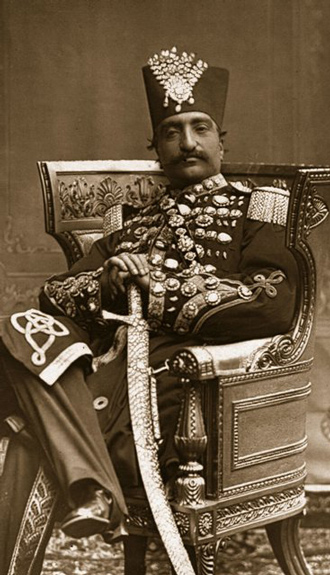
Nasir-i-din-shah
After a brief period of attempts at reform in the early years of Nasiri’d-Din Shah’s rule by the prime minister Amir Kabir, Iran put the politics of reform and modernization aside and discontinued any attempt to modernize. The situation did not change until 1871, when the Shah appointed Husayn Khan as the minister of justice, implying some interest in reform on the part of the Shah. Husayn Khan, a relatively enlightened man, was exposed to modern ideas during his 12 years as Iran’s ambassador in cosmopolitan Istanbul—one of the most significant centers of cultural and political criticism and a place for the dissemination and debate of Western ideas.
The ideal of the French Revolution and the ideas of the philosophy of the Enlightenment were influential within Istanbul intellectual circles. In addition, Husayn Khan was closely familiar with the Ottoman policies of legal and administrative reform called Tanzimat. For all these reasons Husayn Khan became a serious advocate of change, continuously encouraging the Shah to initiate reform policies.
In 1872 Nasiri’d-Din Shah named Husayn Khan as his prime minister. But Husayn Khan’s concessions to British investors became a pretext to mobilize effective opposition against him by the joint forces of the conservative clergy and Qajar princes. Therefore, in 1873 the Shah asked for his resignation. However, Husayn Khan was appointed as the minister of defense, and he continued to implement his reforms throughout the decade. Finally, he was relieved of all political posts in 1880, and died during the following year. The policy of reform was effectively terminated and the Shah returned to his dictatorial and patrimonial policies.
During his various ministerial posts, Husayn Khan tried to carry out a wide variety of social, judicial, military, political, economic, and cultural reforms. In judicial affairs, he tried to limit the arbitrary judicial power of the local landlords, governors, and clergy over their subjects. The governors were normally Qajar princes who, together with the Islamic clergy, had unlimited legal and judicial power over the people. The arbitrary prosecution, sentencing, and punishment of the peasants by their landlords were some of the most common sources of oppression and social injustice. This included the execution of their subjects. Husayn Khan tried to confine the judicial power to the ministry of justice and the official representatives of the ministry. He also made any capital punishment dependent on the approval of the headquarters of the justice ministry. In military institutions, he tried to make the military authority more impersonal and bureaucratic. Fighting corruption and financial abuse was one of his primary concerns.
Husayn Khan expanded and created modern educational colleges and created new weekly newspapers. He constructed several important buildings, streets, and mosques, and installed streetlights in Tehran. Finally, Husayn Khan tried to initiate some cultural reforms as well. He wanted to expose the Shah to the modern developments in the West. Consequently, he encouraged Nasiri’d-Din Shah to travel to Europe so that he would note the need for reform in Iran. In 1873 the Shah made his first trip to Europe.
However, the reform attempts of the 1870s did not continue and were not effective. Nasiri’d-Din Shah himself was not pleased with the limits on his own dictatorial power, but ultimately the united opposition of the Qajar princes and conservative religious leaders condemned the reform initiatives to failure from the beginning. The traditional authorities in the semi-feudal patrimonial system in Iran—the wealthy princes and the clergy—resented any attempt at formalization or centralization of their judicial, political, and financial powers.
Max Weber, the prominent German sociologist, explicated the sociological terms for alternative forms of authority. According to Weber, authority can be either charismatic, traditional, or bureaucratic. Charismatic authority is based upon the belief of the people that the leader is endowed with extraordinary characteristics. Prophets of God are the best historical examples of charismatic authority. The word of a charismatic figure is the sole criterion of law by itself.
However, charismatic authority is often soon replaced by traditional authority, which has ruled most of human history. Traditional authority, which maintains the legitimacy of blind imitation of the past traditions, is itself divided in patriarchal and patrimonial types of authority. Patriarchal authority is a family type of authority. The father is the leader and he has no staff or officials. The leader is not dissociated from the subjects. In patrimonial authority, however, the leader is dissociated from his subjects. But the entire group is ruled as the personal possession of the ruling family.
Opposed to both types of traditional authority is bureaucratic authority, in which authority becomes impersonal, based upon formal and universal rules and laws. Allocation of offices is determined in terms of technical knowledge and qualifications, and not personal characteristics or connections. Max Weber calls this bureaucratic form of authority legal-rational. Now, we call it the rule of law.
Abdu’l-Baha’s The Secret clearly relates to these important developments in 1870’s Iran. His basic message contains a refutation of the traditionalist forces and their patrimonial system of authority. He supports the spirit of reform, while explaining its limitations. His criticism of the patrimonial system is clearly explicit, but his critique of the ideals of the reform camp is more subtle. The main weakness of the reform attempt, Abdu’l-Baha wrote, was its lack of a clear vision of development. That is precisely what he offered in The Secret.
At the same time, while Abdu’l-Baha defends a legal-rational type of political and administrative authority—commonly known as “the rule of law”—he does not believe in the centralization of bureaucratic power, as was attempted by the reform party in 1870s Iran.
Abdu’l-Baha makes it clear that he is categorically opposed to the patrimonial system, with its arbitrary and undemocratic power of the local governors and landlords. But he equally opposes undemocratic forms of centralized power, as exemplified by the imperial rule of the Shah. As we will see in the next essays in this series, Abdu’l-Baha’s vision of modernity is both democratic and decentralized—both of which were absent from Husayn Khan’s policies and ideological framework.
Abdu’l-Baha in 1875, and Baha’u’llah much earlier, were actually the first Iranians who raised the call for a parliamentary democracy in Iran:
It is unquestionable that the object in establishing parliaments is to bring about justice and righteousness, but everything hinges on the efforts of the elected representatives. If their intention is sincere, desirable results and unforeseen improvements will be forthcoming; if not, it is certain that the whole thing will be meaningless, the country will come to a standstill and public affairs will continuously deteriorate …
In the present writer’s view it would be preferable if the election of nonpermanent members of consultative assemblies in sovereign states should be dependent on the will and choice of the people. For elected representatives will on this account be somewhat inclined to exercise justice, lest their reputation suffer and they fall into disfavor with the public. – Abdu’l-Baha, The Secret of Divine Civilization, pp. 23-24.


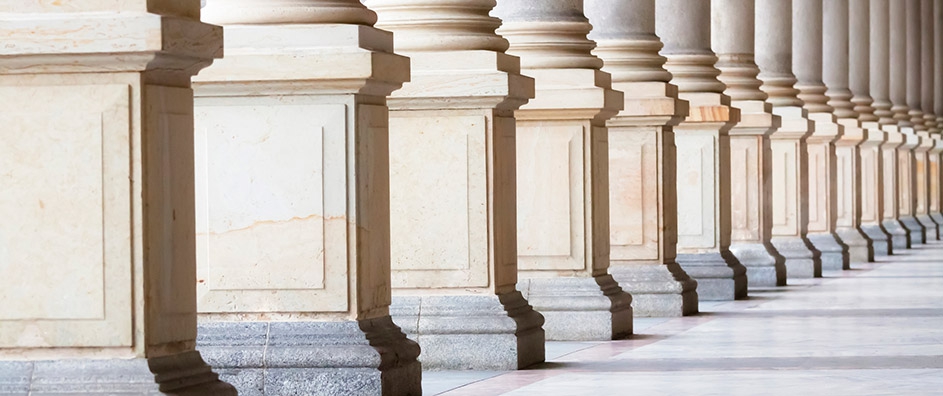
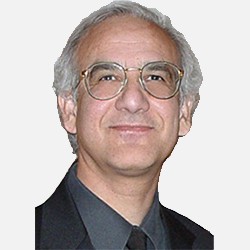
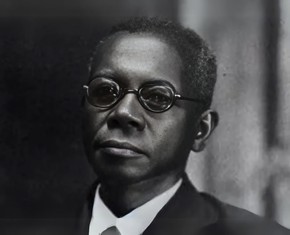

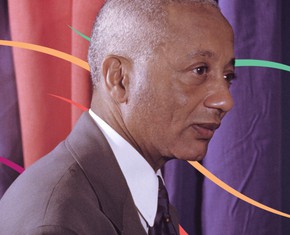









Comments
Sign in or create an account
Continue with Googleor